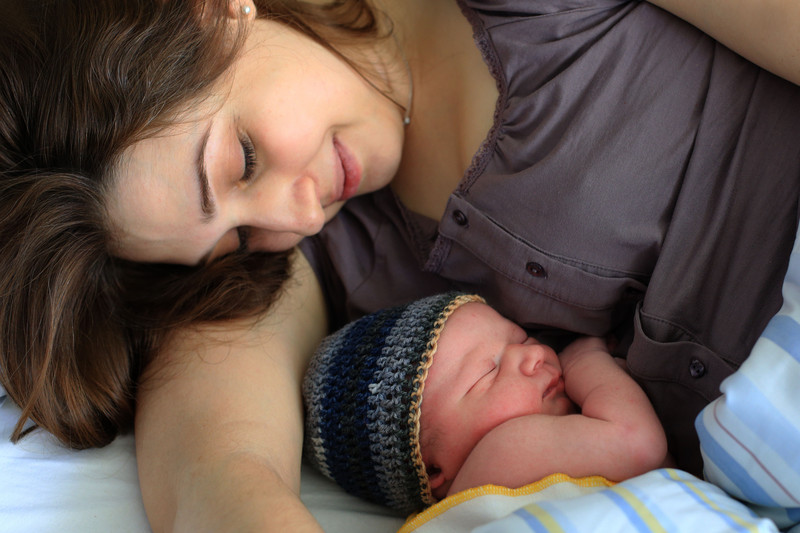“Breastfeeding is about much more than just feeding.”

Breastfeeding is considered a natural and wholesome way to feed babies that has a lasting positive effect on a child’s physical and mental health. Christa van Leeuwen, a midwife with 45 years of professional experience, reveals in an interview why that is the case.
Ms van Leeuwen, what is the importance of breastfeeding for an infant’s physical development?
Christa van Leeuwen: Breast milk is a live food product and the best thing a mother can give her child – in many ways. Optimally adapted to the baby’s nutritional needs, it is easily digested. Breast milk contains a lot of protein, especially in the first days after birth, which means it provides important antibodies for the infant’s immune system. Therefore, from a purely physiological point of view, it provides the baby with comprehensive protection against infectious diseases, inflammations and allergies – even beyond infancy. That is why the World Health Organization also recommends exclusively breastfeeding for six months.
Besides keeping babies healthy and feeding them, are other needs met through breastfeeding?
Christa van Leeuwen: For example, if the baby cries or signals in another way that it is hungry and the mother puts it to her breast in response, that is a very accepting gesture. The distance between the mother’s face and that of the newborn corresponds precisely to what the latter can see at that time. A mother’s loving gaze is enough to make a baby feel safe and secure. On top of that, her familiar smell, direct skin contact, physical warmth and tender caresses all also nourish a child’s soul, creating a deep inner bond. Therefore, breastfeeding is about much more than just feeding. It is the most intensive form of care that a mother can give her child and a mutual expression of love.
What can grow out of this close bond between a mother and her child?
Christa van Leeuwen: A mother always tries to be there for her child. In her new role, she bears responsibility for others and takes a back seat. Because breastfeeding, in particular, requires patience and takes energy. As a consequence, she may develop new characteristics or qualities. The child, in turn, has essential and lasting experiences: It learns to trust, including in life itself. It perceives dependability and the ability to love. Ultimately, it is moulded for its entire life, as it carries these early experiences firmly within itself and can pass them on as an adult.
What has changed about breastfeeding in recent decades?
Christa van Leeuwen: In the past, while breastfeeding was still uncommon in public, women would withdraw with their babies out of self-consciousness. Fortunately, that has now changed. The advantage, however, was that mothers were at peace while breastfeeding and could consciously focus on their child, caressing it and kissing its little fingers. That is what the child feels and what is good for its soul. Nowadays, mothers are often distracted when dealing with their children. For example, they sit in front of the TV while breastfeeding or tap incessantly on their smartphone while pushing their pram. When the child is a bit bigger and more alert is especially when it accumulates a lot of impressions from its environment. A mother who only looks at her phone and chats does not even notice how that affects her child and cannot guide it in its experiences.
How do you perceive the initial postpartum period today?
Christa van Leeuwen: In recent years, I have seen that many mothers put a lot of pressure on themselves. The postpartum period actually lasts six weeks. Like pregnancy and birth itself, it is a sensitive phase in a woman’s life. Emotions go up and down during this time. In postnatal care, I have often experienced how much pressure some mothers are under because their child nurses so slowly and is sleepy on that day. They want to take their babies to toddler group or baby swim class at 10. A child senses such restlessness immediately. It notices that something is wrong and consequently stops nursing.
What causes this pressure?
Christa van Leeuwen: I think it is because young mothers today are afraid of missing out. When they leave the clinic three to five days after giving birth, many start by going shopping at a drugstore with their child or even to a restaurant for dinner with their partner and the baby. In my opinion, there is a lack of sensitivity and perception for the child’s needs because newborns have to properly digest such external impressions as well. I think it is very important at this point to be content, to accept the new situation and to get used to each other so that mother and child can first find their own rhythm.
How can this rhythm be fostered?
Christa van Leeuwen: First and foremost, through time and attentiveness. The mother’s attention should be completely focused on the child. The adjustment process is huge. The mother first has to find her way into her new role, and the child also needs a while to arrive in this world: breathing on its own, eating on its own, digesting on its own – that’s a big ask for such a tiny human child. It also means that a mother observes her child carefully in order to be able to interpret its signs correctly. The baby will gradually develop a regular nursing rhythm, about every two to four hours, providing it with the necessary structure and security to find its way in life in the long run.
